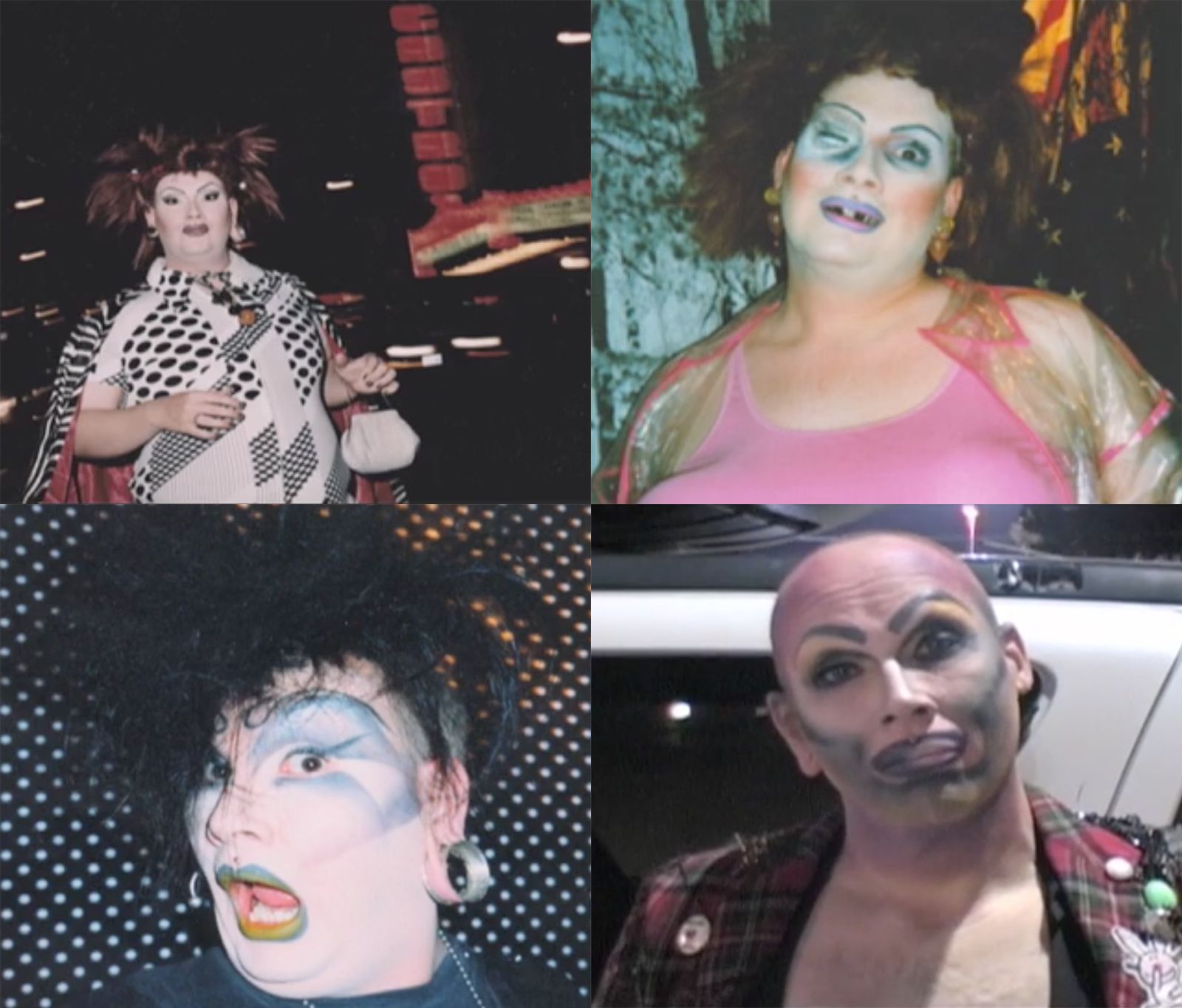Phatima Rude, a drag queen who helped to define the raw and genderqueer aesthetics of San Francisco's drag scene of the 1990s and early 2000s, was found dead in their Portland, Oregon home on Tuesday. They were 55.
Phatima was well known as a fixture at clubs like Trannyshack and SomeThing at The Stud, and, before that, Club Uranus at the EndUp, consistently pushing the boundaries of what drag was and could be. As Phatima tells it in the 2014 documentary Ladies and Gentlemen, Phatima Rude (see below), they were first put in drag by MichaelAngelo, a performer at Club Uranus in the early 1990s whom Phatima describes as having a male but amorphous, punk persona.
Phatima's inspirations came from a variety of sources, including a childhood spent with his mother working in a state mental hospital in Minnesota, and people-watching in malls — and there's an obvious influence from early, art-drag icons like Leigh Bowery and the aesthetics of the Club Kid era.
On one night at The Stud, depicted in the film, Phatima wore a full, fetish-style, head-covering leather mask with pieces of Velcro attached where passersby could attach paper eyes and mouths, using Phatima as a canvas to create funny or horrifying images. A simple sign, held in Phatima's hand, said, "I'm nothing without you."

"Once you do drag, it's in your blood," Phatima said, speaking to filmmakers Paul King and Joel Landmine. "It became my medium, and my dialect, for what I wanted to convey, or make others thinking about, or entice, or repulse."
On another performance night, Phatima wore toe shoes made of duct tape to do some simple ballet. On another, they were wrapped into a ball with only their face exposed, with the help of duct tape, and got rolled around the club like an enormous child's toy.
Phatima talked about wanting to challenge body-image standards — especially those of gay men in the 1990s — with their drag, and party promoters in SF were all for it. At clubs during that time, at 300 pounds and sometimes with white pancake makeup on, Phatima could be seen go-go dancing on boxes alongside trim, buff men, wearing next to nothing.
Ladies & Gentlemen, Phatima Rude: Extended Cut from Joel Landmine on Vimeo.
Performance art and politics have always been major influences on San Francisco drag queens — moreso than in other cities, arguably — and Phatima was always an artist, first and foremost.
Around 2010, Phatima was living at the Mission District anarchist space Station 40, and famously they fended off police at the door for three hours during one of the Queer Autonomous Zone events there. "It was a very 'You shall not pass!' moment, a truly liberating experience, telling the cops that this was our space and they couldn't come in," Phatima said.
In 2019, Vogue featured four "elders of San Francisco drag" and included Phatima among them, as well as the above anecdote.

At the time of the documentary and for several years thereafter, Phatima was homeless and living in a minivan on the streets of San Francisco. They were working for Homobiles, the queer-focused taxi service that launched in the days before Uber, offering rides on demand for cash for drag queens, queer people, and anyone else looking for a safe lift. On Fridays, as depicted in the documentary, Phatima would get into drag using the car's overhead mirrors and the glove box as a makeup table, drive Homobiles customers around for a couple of hours, and then take a break around 11 p.m. to go perform a number on stage at SomeThing, the drag club that succeeded Trannyshack at The Stud. Then, they would do some more driving before finding a spot to park and sleep.
Phatima then relocated to Portland and lived in the van there, but as the Chronicle reported in 2019, a crowdfunding campaign helped them move into a 1977 Dodge Beaver motor home. That campaign followed on some increased attention from the Vogue piece and a subsequent Chronicle story that mentioned they were still homeless.
In the past few years, Phatima's work and thoughts could mostly be found on Instagram.
Phatima suffered from multiple medical conditions, and according to drag daughter Kochina Rude, they were found by a friend and neighbor on Tuesday having "passed peacefully in bed" at their home. Phatima's beloved dog Mary Kate is now being cared for by another neighbor.
"Phatima was an icon, legend, and trailblazer, onstage and in all other areas of their life," Kochina writes on Instagram, switching between "they/them" and "she/her" pronouns. "They were a controversial performance artist and self-described Pronoun whose genuine, complex, and otherworldly approach to humanity touched innumerable others across several decades."
Kochina also recalls that Phatima was fond of throwing mock funerals. "She had carved her own path and comfortably pondered the spectacle of her own death," Kochina writes. "She often expressed 'That which hasn't killed you isn't trying hard enough.'"
Writing her own goodbye on Instagram, Trannyshack creator Heklina writes, "Rest In Peace, [Phatima]. You weren’t meant for this cruel world, and found it hard to navigate at times. But a kinder soul I never met, and there will never be another like you."

